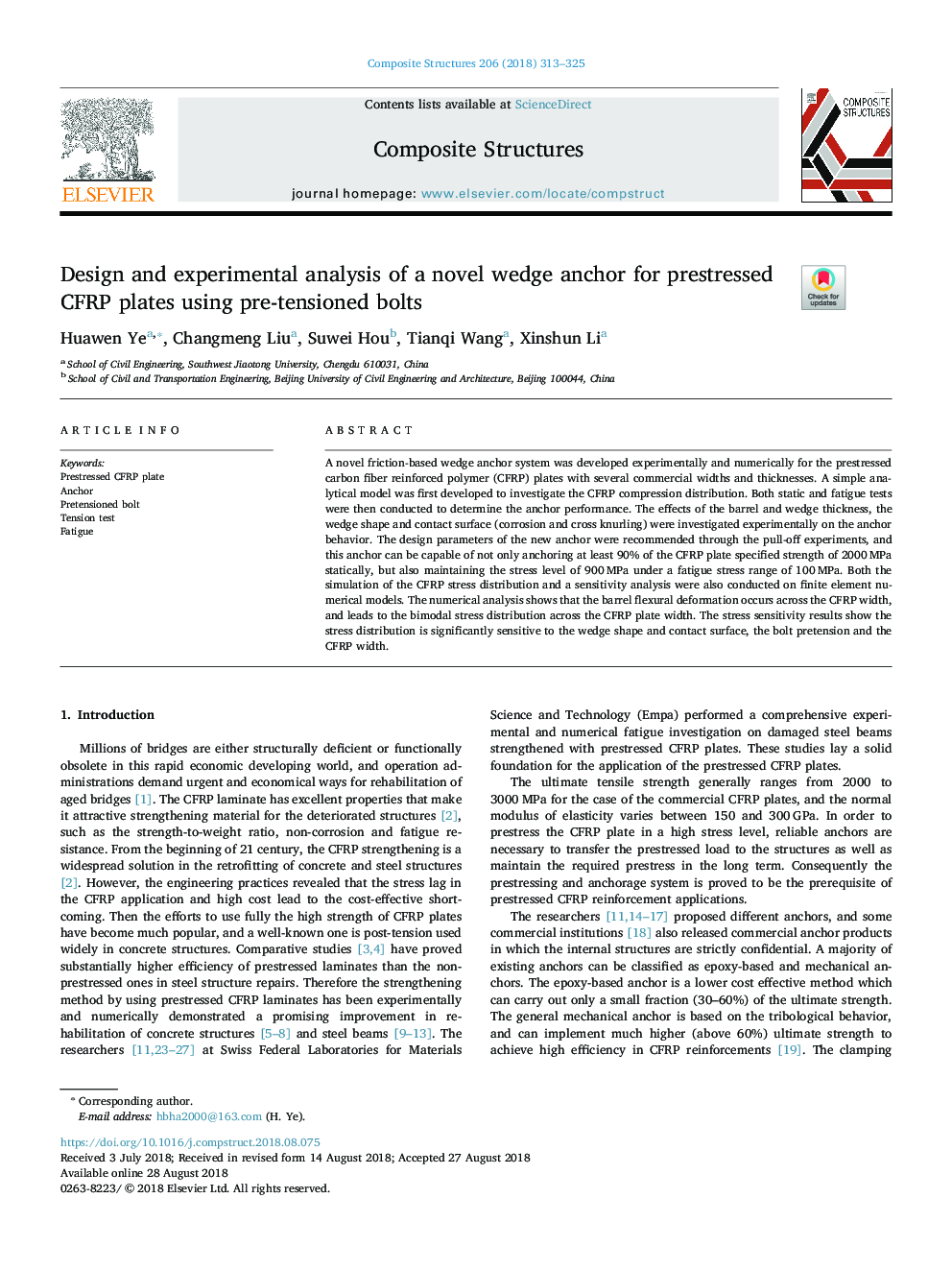| Article ID | Journal | Published Year | Pages | File Type |
|---|---|---|---|---|
| 10131496 | Composite Structures | 2018 | 13 Pages |
Abstract
A novel friction-based wedge anchor system was developed experimentally and numerically for the prestressed carbon fiber reinforced polymer (CFRP) plates with several commercial widths and thicknesses. A simple analytical model was first developed to investigate the CFRP compression distribution. Both static and fatigue tests were then conducted to determine the anchor performance. The effects of the barrel and wedge thickness, the wedge shape and contact surface (corrosion and cross knurling) were investigated experimentally on the anchor behavior. The design parameters of the new anchor were recommended through the pull-off experiments, and this anchor can be capable of not only anchoring at least 90% of the CFRP plate specified strength of 2000â¯MPa statically, but also maintaining the stress level of 900â¯MPa under a fatigue stress range of 100â¯MPa. Both the simulation of the CFRP stress distribution and a sensitivity analysis were also conducted on finite element numerical models. The numerical analysis shows that the barrel flexural deformation occurs across the CFRP width, and leads to the bimodal stress distribution across the CFRP plate width. The stress sensitivity results show the stress distribution is significantly sensitive to the wedge shape and contact surface, the bolt pretension and the CFRP width.
Keywords
Related Topics
Physical Sciences and Engineering
Engineering
Civil and Structural Engineering
Authors
Huawen Ye, Changmeng Liu, Suwei Hou, Tianqi Wang, Xinshun Li,
